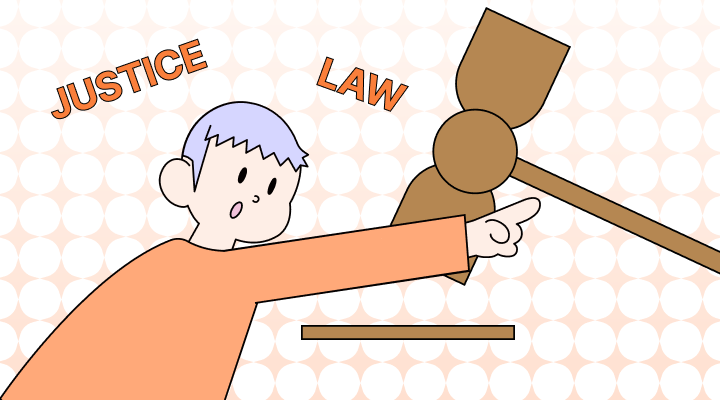Both "persecute" and "prosecute" are spelled correctly. "Persecute" is about mistreatment or oppression, while "prosecute" is about legal action and the pursuit of justice within the legal system.
"Persecute" is a verb that describes the act of treating someone in a harsh or oppressive manner, often due to their race, religion, political views, or membership in a particular social group. It involves subjecting individuals to hostility, discrimination, or mistreatment based on these factors. To persecute someone means to deliberately target and harm them because of who they are or what they believe. This mistreatment can manifest in various ways, such as physical violence, legal or social discrimination, intimidation, or harassment.
"Prosecute" is a verb that refers to the act of initiating and carrying out legal proceedings against someone, typically in a court of law. It involves bringing criminal charges or taking legal action against an individual or organization for a perceived violation of the law. The term "prosecute" is commonly associated with the legal process of pursuing and presenting a case against an accused party in order to obtain a judgment or conviction.
Example sentences
Persecute:
- The religious minority was persecuted for their beliefs and faced constant discrimination.
- Throughout history, many individuals have been persecuted for their political views.
- She fled her home country to escape persecution and seek asylum in a safer place.
- The government was accused of persecuting journalists who criticized its policies.
- The novel tells the story of a young woman persecuted for her unconventional ideas.
- The organization works tirelessly to raise awareness about persecuted communities around the world.
- They faced persecution and were forced to go into hiding to protect their lives.
- The government passed laws to protect minority groups from persecution and discrimination.
- The documentary shed light on the persecution faced by activists fighting for human rights.
- The international community condemned the government's actions as a clear case of religious persecution.
Prosecute:
- The district attorney decided to prosecute the suspect for the alleged crime.
- The legal team is preparing to prosecute the case against the accused.
- The prosecutor presented compelling evidence to support their decision to prosecute.
- The police gathered sufficient evidence to prosecute the individual for theft.
- The attorney general vowed to prosecute corruption at all levels of government.
- The court appointed a skilled prosecutor to handle the complex case.
- The defendant hired a defense attorney to challenge the prosecution's case.
- The prosecution called multiple witnesses to testify against the defendant.
- The judge dismissed the case due to lack of evidence, and the prosecution failed to prove guilt beyond a reasonable doubt.
- The international tribunal was established to prosecute war crimes and acts of genocide.
Want to sound like a native speaker?
Engram’s AI-powered grammar checker makes your English sound like a native speaker’s, suggesting natural English expressions on top of fixing grammar, spelling, punctuation, word order, and vocabulary.

Reference:















